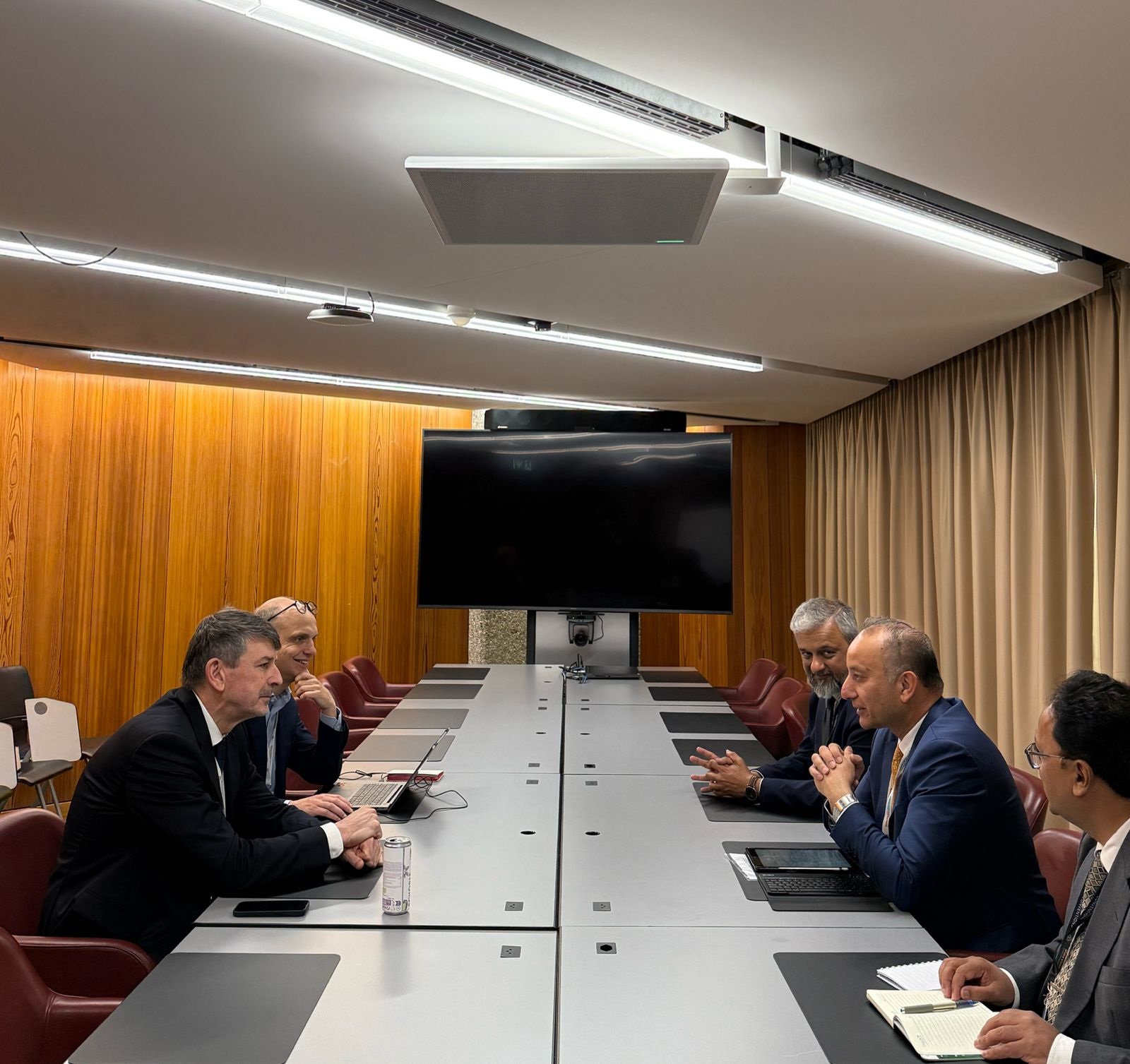
- Dr Malik stresses global green standards must be inclusive, equitable.
- Says the biggest hurdle is that developing countries are not visible.
- Highlights financial challenges faced by countries like Pakistan.
GENEVA: Federal Minister for Climate Change and Environmental Coordination Dr Musadik Malik on Thursday called for stronger international cooperation to help developing countries shift to a green economy, speaking at a high-level climate conference in Geneva.
The event was organised by the United Nations Capital Development Fund (UNCDF) and took place alongside the Conference of Parties (COPs) to the Basel, Rotterdam, and Stockholm (BRS) Conventions in Geneva.
Talking at a ministerial panel discussion, Dr Malik stressed that global green standards must be inclusive and equitable, rather than serving as barriers for poorer nations.
“Green development standards should not be a burden but an opportunity for developing countries,” he said, adding, “Global standards must be for everyone, not just wealthy nations.”
“I think the biggest hurdle that I see is that the developing countries of the world are not visible,” he said in his opening remarks. “But I think when I hear this debate, what is not visible to me are the imperatives of developing countries,” he said in the same breath.
“There is no doubt that there is an economic burden of illness on the people, particularly poor people living in developing economies.”
He highlighted the financial challenges faced by countries like Pakistan, noting its 240 million population has only $350 million in private portfolios — far too little to fund green initiatives alone.
“Without adequate resources, technology transfer, and research support, a green economy remains out of reach for developing nations,” he added.
Dr Malik urged the international community to ensure fairness in climate policies, warning that environmental goals cannot be achieved without including developing countries.
“Developing nations must be active participants in the global economy, not left on the margins,” he said.
Calling for bold action, he concluded, “The world must make courageous decisions for a shared green future.
Practical barriers must be removed through resource mobilisation, not rhetoric.
The summit continues to discuss strategies for equitable climate action amid growing pressure to meet global sustainability targets.
Meetings with key counterparts
On the sidelines of the conference, Dr Malik, met with Dr Abdullah bin Abdulaziz, Minister of Environment and Climate Change of Qatar.
Dr Abdulaziz expressed desire to strengthen bilateral cooperation and coordination on environmental issues, in the domains of environment, climate change, protection of wildlife and clean energy, in mutually beneficial ways.
Dr Malik, while appreciating Qatar’s transformative actions for a greener economy, discussed avenues to benefit from Qatar’s expertise and technology in petrochemicals and recycling.

Opportunities in carbon trading/offsets and developing a regional carbon market were also discussed.
The two ministers reaffirmed commitment to deepen cooperation in these domains. They also decided to explore more avenues to enhance collaboration by exploring joint initiatives, bilaterally and at other multilateral fora.
Dr Malik also engaged in a discussion with Ciobanu Dordea, Director for Circular Economy at the European Commission.
During the meeting, Dr Malik emphasised the mutually beneficial economic partnership with the European Union.
He stressed that developing countries’ perspectives should be given more importance in the global environmental frameworks.

The minister underlined Pakistan’s efforts towards circular economy goals and sustainable development.
He identified a number of green cluster development opportunities toward which both Pakistan and European countries/companies can collaborate.
Dordea, while appreciating Pakistan’s commitment, suggested several avenues for enhancing cooperation on various aspects related to environment, waste management and circular economy.
The two also discussed different ideas for increasing economic cooperation between Pakistan and the EU member states’ private sector in this regard.



